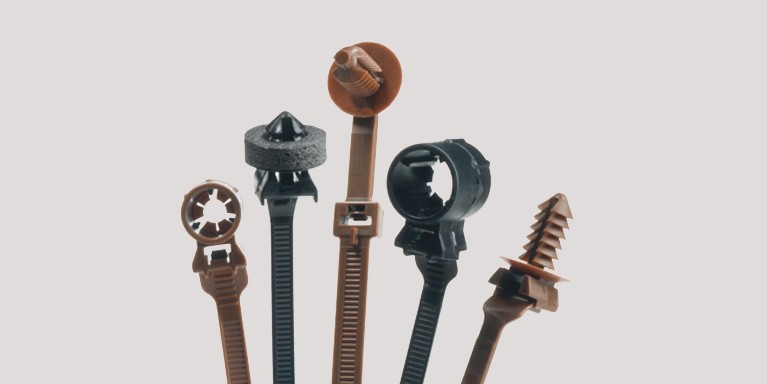The heat is on for today’s vehicle engineers: Smaller engine compartments, allowing reduced air flow, house smaller and more powerful engines that are frequently turbocharged. Vehicles are also increasingly electrified, with high voltage battery systems being prominent in electric and hybrid vehicles. All of these factors contribute to higher operating temperatures in modern vehicles.
At the same time, fuel economy standards are driving the adoption of lightweight plastics in place of heavier metals. This transition is happening to a variety of components throughout the vehicle.
Seeking temperature-resistant plastics
This combination of trends is thus pushing vehicle engineers to seek out reliable plastic fasteners that can withstands temperatures above 125 degrees Celsius. In an increasing number of cases, they’re requiring resins that can perform at temperatures ranging from 135 to 165 degrees Celsius.
To date, fastener manufacturers have addressed this by offering Polyamide 4/6 (PA46), or even higher performance plastic resins such as Polyether ether ketone (PEEK), in place of traditional resins such as heat stabilized or impact modified Polyamide 6/6 (PA66).
There are, however, disadvantages to these alternatives. First, they come at much higher prices. They then require customers to invest in dedicated molds and process equipment that differ from those used for PA66 products. There’s also a concern that PA46 performance is compromised with prolonged exposure to temperatures of 150 degrees Celsius.
A cost-effective, high-heat solution: PA66 High Heat
Avery Dennison is helping engineers answer these challenges with our PA66 High Heat (HH) resin-based products.
The resin is similar to the impact modified, heat resistant PA66 used in most of our automotive engineered fasteners. However it’s formulated a special heat resistance package. The result is a plastic fastener that can withstand 150-degree Celsius continuous temperatures with excursions to 165 degrees. It’s been been heat age tested for 1,000 hours at 150 degrees Celsius, and for more than 4,000 hours at 135 degrees Celsius, without any compromise to performance.
PA66 HH offers additional advantages:
It’s priced lower than PA46, making it a more cost-effective solution out the door.
It processes just like PA66 IMHS resin and can be used in the same molds. So, if we have a profile in standard PA66, it will be available in the high heat version as well.
It remains more pliable than PA46 after long exposure to high temperatures.
It’s available in brown to differentiate from similar profiles using 125-degree Celsius (T3) resins.
Can we help you beat the heat?
PA66 HH is just one of the many solutions Avery Dennison offers to help engineers overcome the challenges of modern vehicle design. For samples or more information, contact your local Avery Dennison representative.

